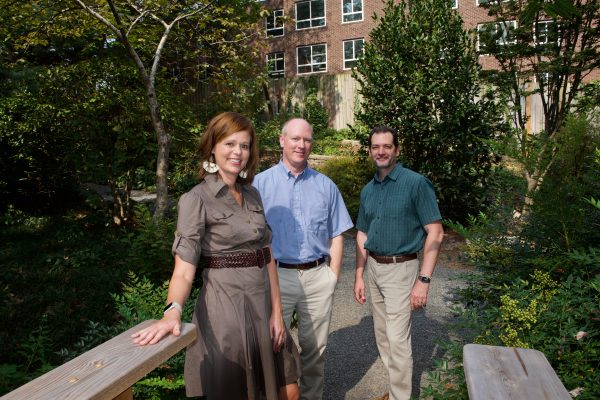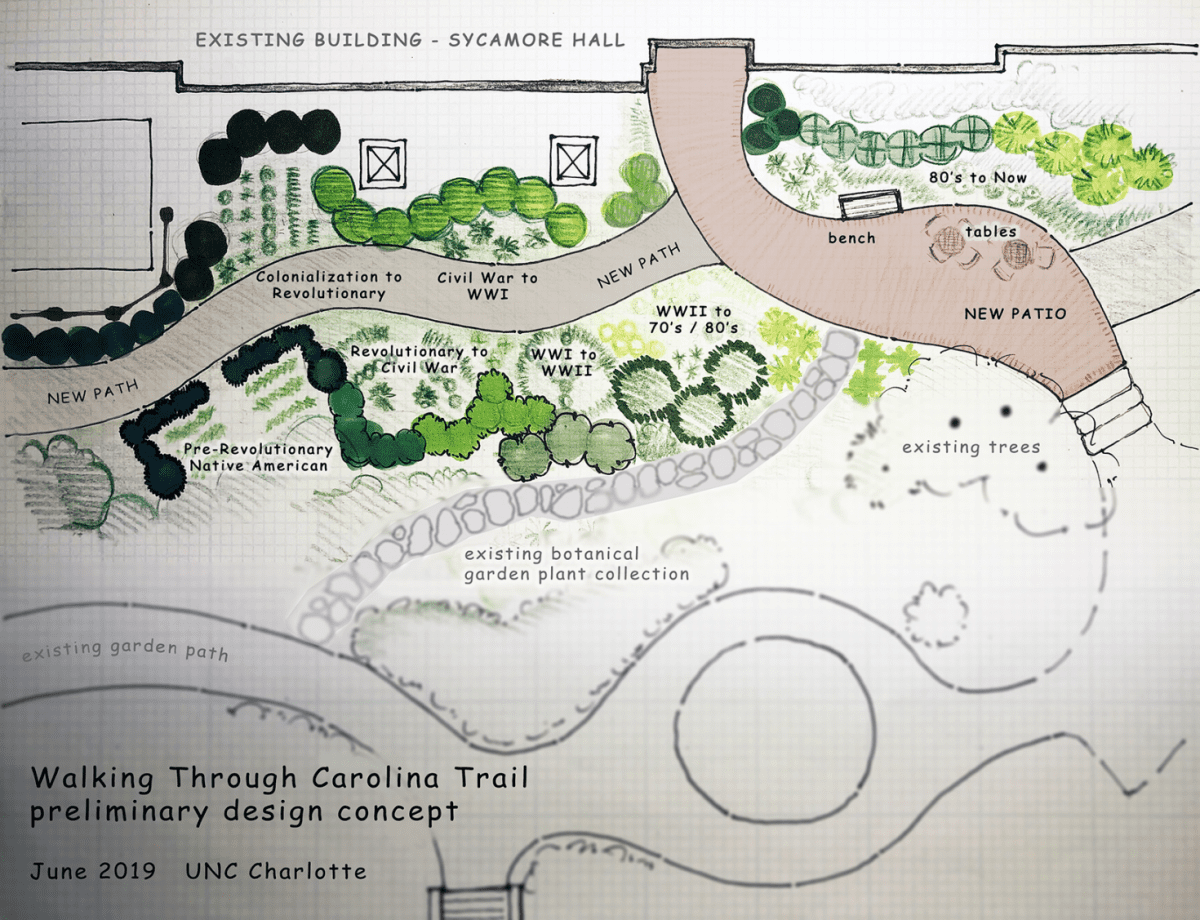UNC Charlotte Botanical Gardens’ Historical Trail to interpret cultures

An outdoor, living exhibit on its way to the UNC Charlotte campus will tell the story of North Carolina through plants and crops crucial to the state’s development.
A team representing the University’s Center for the Study of the New South, Botanical Gardens and Urban Institute received a grant from the North Carolina Humanities Council for the project, “Walking Through Carolina: An Outdoor Living Exhibit.” The project was one of three chosen statewide to receive support through the council’s 2019 large grant program for community-based public humanities programs.
By interpreting North Carolina’s diverse cultures through a historical garden trail, the UNC Charlotte project will illustrate how plants speak universally.
“Crops were brought here by many cultures and have evocative stories to tell,” said Ashli Stokes, director of the Center for the Study of the New South. “Visitors will learn how plants were used in different communities, with experts hosting events to encourage intergenerational conversation. By fostering connections between nature and citizenship, our exhibit will spark engagement about being a North Carolinian.”
The trail will provide a type of universal language, allowing people from varying ages and backgrounds to gain knowledge about their shared histories, Stokes said. This will be particularly true as visitors consider how plants have been used in differing and similar ways by people of diverse cultures, generations and geographies.

A conceptual drawing of the planned gardens.
The UNC Charlotte Urban Institute is moving in December to the renovated Sycamore Building, adjacent to the Botanical Gardens and the site of the new trail.
“We see the partnership with the Center for the Study of the New South and the Botanical Gardens as an exciting opportunity to expand our mission of helping the public better understand the Charlotte region, with the trail being an exciting way to engage our visitors and partners in understanding the region’s cultural and natural heritage,” said Urban Institute Director Jeff Michael.
The Walking Through Carolina Trail will provide additional green space and opportunities for UNC Charlotte students, faculty, staff and community members to engage in experiential learning and volunteerism. Students will gain research, writing and hands-on gardening experiences, while professors will be able to incorporate this space and other garden spaces into their teaching, research and community engagement.
Construction has begun on the trail in the Botanical Gardens. The team hopes to begin scheduling community events in 2020. Plans call for regional and national speakers who will interpret the trail through its connections to common foodways (eating habits and culinary practices of a people, region or historical period). Other plans call for an interactive online map and in-depth information in print and online, such as podcasts and other media platforms.
The North Carolina Humanities Council is a statewide nonprofit and affiliate of the National Endowment for the Humanities. Through grant-making and public humanities programs, the council serves as an advocate for lifelong learning and thoughtful dialogue about shared human experience. While UNC Charlotte College of Liberal Arts & Sciences Dean Nancy Gutierrez is the chair elect of the council trustees, she was not part of the review process for this grant.
Robin Rothberg